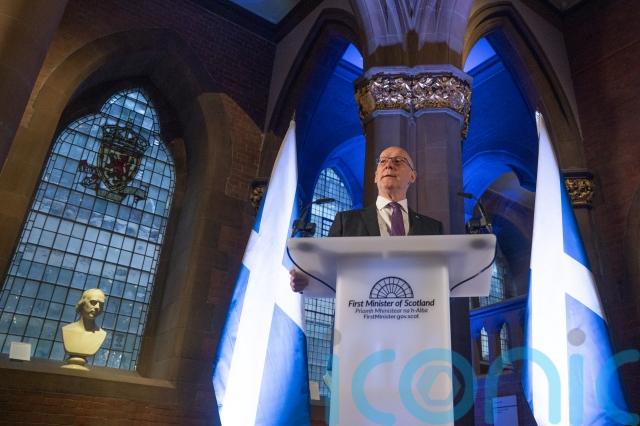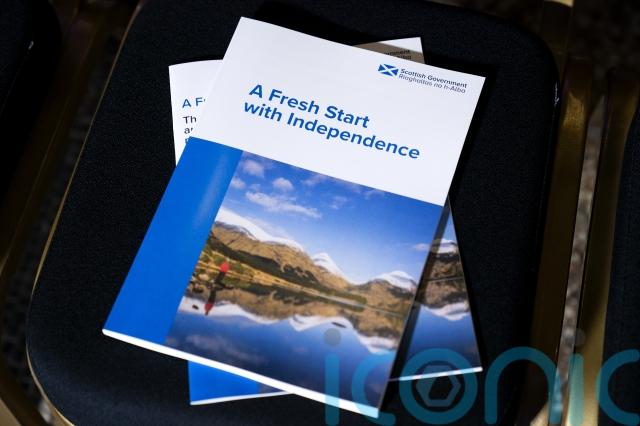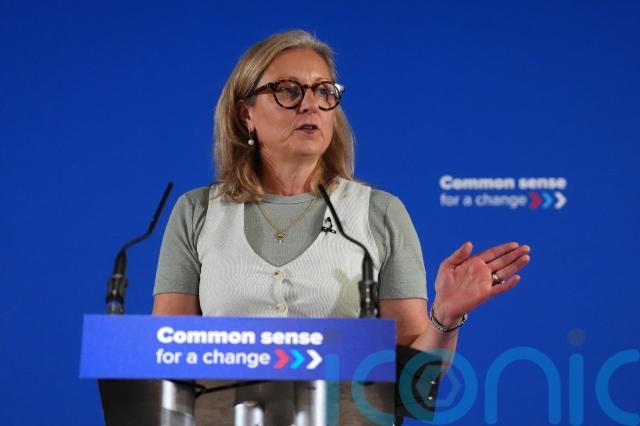
Scottish households would be more than £10,000 better off per year if the country was independent, a Government paper has suggested.
The Fresh Start With Independence document published on Wednesday made the claim off the back of an assessment from the Resolution Foundation, which found UK households would see an £8,300 per year bounce if the average income and inequality was the same as other countries of a similar size.
If the same analysis was applied to an independent Scotland, the paper argues, Scottish households would be £10,200 better off.
But the paper adds: “That does not mean Scottish households would instantly be more than £10,000 richer each year if Scotland was a nation state, or even that we would be as successful just by being independent.

“Instead it shows how much better those comparable nation states do than the UK, and what we might be able to do if we were able to make our own choices about the shape and direction of our economy.
“The prize of independence, the Scottish Government believes, is not matching the performance of these independent countries straight away, but the opportunity to start catching up.”
Speaking at an event in Edinburgh’s National Portrait Gallery as the paper was published, First Minister John Swinney warned of a “rightward shift” in UK politics.
“Given the direction Westminster is intent on taking Scotland day by day, the need for people in Scotland to consider an alternative future is becoming more and more pressing,” he said.
“Indeed, I believe it is urgent and essential.
“The prospect of Nigel Farage becoming prime minister is a very real one, but even if Farage does not make it to Number 10, he is driving the agenda at Westminster ever more to the right.
“I believe, with all my head and all my heart, that cannot be the best future for Scotland.”
The First Minister insisted leaving the UK is an “opportunity of higher living standards”.
He added: “As we embark on building a nation state in Scotland, there is every reason to believe that we can match the high-productivity, higher living standard societies of our neighbours in north-western Europe.
“The opportunity of Scottish independence is the opportunity of higher living standards.
“Today’s paper sets out, therefore, not just the why of independence, but how a future nation state can practically be achieved.
“As the urgency and necessity of independence is now clearer, it is these themes that we will take to the people of Scotland – the benefits of self-government, the huge potential that is all around us, the evidence that independence for countries like Scotland leads to higher living standards and greater equality.”
Speaking to journalists later, Mr Swinney was pressed on whether Scots could expect income tax to change if the country became independent.
The First Minister said he did not expect any change, saying: “My best guess is that I don’t believe there needs to be a change to the current profile of income tax in Scotland.”

Asked about the deficit of an independent Scotland and how this would meet EU rules on public finances, he said: “I accept the importance of that point.
“What’s also important is that we agree the starting point of an independent Scotland. Because that will be a product of assessing the assets and liability of the the UK and Scotland at that particular moment.
“So none of us knows what that starting point looks like definitively.”
The Bank of England would continue to be the lender of last resort as an independent Scotland continued to use Sterling before transitioning to its own currency, he said.
The First Minister also said Scotland is at the “limits of devolution” in terms of improving living standards.
The paper comes just days before he is to put his plans for achieving independence before party members at the SNP conference this weekend.

His proposals would see a second referendum sought if the SNP gains a majority in next year’s election, while opponents of his plans have pushed for the May poll to be treated as a de-facto referendum.
However, both plans would require UK Government approval and co-operation, which they seem unlikely to get.
The SNP’s opponents were scornful of the latest independence paper.
Alastair Cameron, chairman of the campaign group Scotland in Union, said: “Much like the old white paper, the Growth Commission report and the previous series of papers, this document is yet another rehashed wish-list.
“Its assertions and unrealistic assumptions are clearly designed to mask the true costs and risks of breaking the UK apart.”
Scottish Labour finance spokesman Michael Marra said: “John Swinney should be embarrassed at these baseless claims which are entirely detached from reality.
“The Scottish Government’s own Gers statistics demonstrate that Scotland would lose £14 billion on day one of independence.”
Scottish Conservative deputy leader Rachael Hamilton said: “Our message is simple: move on John.
“Independence would make Scotland poorer and everyone would suffer the consequences of the SNP’s economic sabotage.”
Subscribe or register today to discover more from DonegalLive.ie
Buy the e-paper of the Donegal Democrat, Donegal People's Press, Donegal Post and Inish Times here for instant access to Donegal's premier news titles.
Keep up with the latest news from Donegal with our daily newsletter featuring the most important stories of the day delivered to your inbox every evening at 5pm.